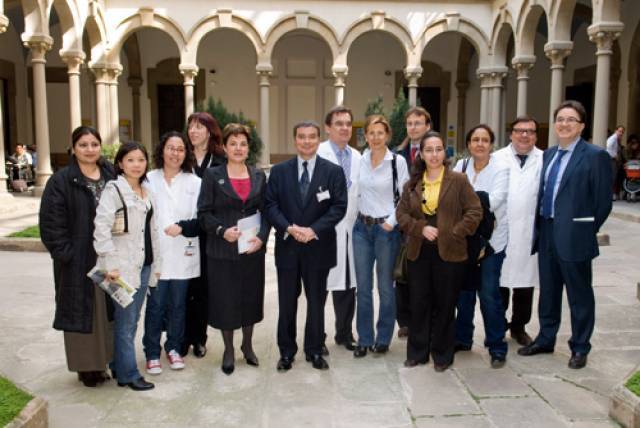From the perspective of public health, immigrant mothers constitute a group that requires specific actions in health care prevention and promotion. This complements other initiatives aimed at identifying and reducing barriers to the use of the health care services. Social and economic differences among these women (such as insufficient social support networks and late use of prenatal care) paint a scene of disparities and unsatisfied needs in the areas of maternal and reproductive health. Hospital Clínic de Barcelona has been working since 2006 with the Associació Salut i Família (Health and Family Association) on developing an intercultural mediation program aimed at mothers from these groups, with the objective of improving communication and the quality of care provided for them.
The preliminary results of this study were presented today and show a marked contrast in perception and expectations regarding the health care system, depending on culture of origin. The study also proposes a number of measures to be carried out in the short term, in which intercultural mediators play a key role. The event was attended by the study coordinators, Dr. Manuel Santiñà, coordinator of the intercultural mediation program of Hospital Clínic de Barcelona, and Dr. Elvira Méndez, director of the Associació Salut i Familia, Dr. Raimon Belenes, CEO of Hospital Clínic, and Ms. Tona Lizana, director of the master plan for immigration of the Catalan Ministry of Health.

The research was carried out using the focus-group technique, which consists of a single meeting conducted by experts in the technique, accompanied by the intercultural mediators. The groups focused on exploring the social and cultural circumstances surrounding pregnancy and maternity, and the perception of immigrant mothers regarding the care received from the public health care services during pregnancy and maternity. Four focus groups were formed (Spanish, Latin-American, North-African and Chinese mothers), consisting of a total of 39 women who were attended in the maternity department between August 2007 and June 2008.
The results show a marked contrast in perception of the public health care systems depending on culture of origin, though there were also common experiences in the use of the health care services and the care received. Of note is the fact that most women, whether Spanish or immigrant, felt disoriented when faced with the different recommendations received from health care personnel. Furthermore, language, particularly in the case of Chinese mothers, represented a considerable barrier.
The evaluation of these results indicates that there is variability in treatment among different users and that it is necessary to adopt a number of basic measures to establish a closer relationship with mothers from all sociocultural groups. The changes to be implemented must be carried out in a period of 18 months and will affect different areas. The proposals include focusing on care provided to mothers in the final stages of pregnancy and delivery, intensifying the collaboration of the mediators, and improving the intercultural skills of the health care personnel, which will require designing specific workshops that will be integrated in the Hospital Clínic Training Plan. Leaflets will also be published on basic mother and child care in the first months of life and on neonates with special needs.
To access the study: Study of Multicultural Disparities
